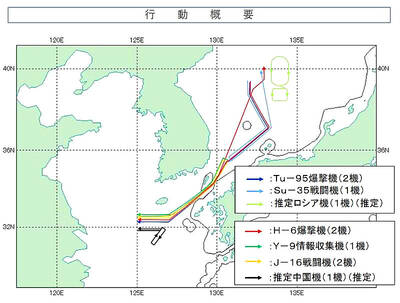After officially joining Ukraine’s International Legion of Territorial Defense, Taiwanese national Naive Wang (王楠穎) documented his experience on the front line of the Russian invasion of Ukraine, saying he reminds himself to never forget that he is “fighting for his adopted home in the name of Taiwan.”
Wang recounted how after working in Ukraine for a decade, he rejected four job offers after evacuating to Poland to become a volunteer at a refugee camp in the Polish town of Medyka.
There, he used his fluent Ukrainian and English to help the refugees pouring into Poland.

Photo courtesy of Naive Wang via CNA
The New Taipei City native later enlisted with the International Legion of Territorial Defense to fight for his adopted home, after putting down roots in the Ukrainian city of Kharkiv.
His decision soon received expedited approval after he demonstrated his linguistic talents by submitting an enlistment application in Ukrainian.
With his multilingual ability as his main tool, Wang now serves on the front line of the conflict.
Wang said it has been getting increasingly difficult to speak or text by electronic means due to military regulations on using communication devices, in addition to his unit being mobile.
Wang said he is prepared for the worst.
“Rather than saying that I won’t back down out of fear, it is more like I have prepared for the worst before coming here,” he said. “The worst-case scenario means getting shot, losing limbs, dying in the line of duty or even the torture I might endure as a prisoner of war should I get captured.”
Wang added that he also has to consider the possibility of having to survive in a war zone by himself if he is separated from his unit, with no supplies or maps, and having to avoid Russian troops.
“The military is very different from summer camp.” he said. “So many people enlisted, half thinking that they’d take the opportunity to sightsee. Then the closer we got to the front line, the more people started to come face to face with their own mortality and began to leave.”
More than half of those who entered the program with him have left since their service began, he said.
Thinking back on the first days after April 7, when he and his fellow recruits joined the foreign legion, Wang spoke about the harsh reality of war, even for someone like him who experienced the tunnels of Matsu as a part of his mandatory military service in Taiwan.
“When I arrived at the border, I had to change vehicles four times before arriving at the volunteer service camp,” he said. “They then interviewed me twice before I was officially allowed to enlist, and I started my first shift standing sentry from 2am to 4am the same day.”
He also recalled that on April 15, halfway through packing up his gear, they were forced to take shelter twice after hearing air-raid sirens.
Wang said his unit was then suddenly told to pick up ammunition for themselves at 1:30am, which only gave them a brief reprieve before they were shipped out to a different location by 5:30am, issued with one bun as nourishment and a bottle of water.
While most of what he related was bleak, Wang also spoke of heartwarming experiences, such as Easter and the bonds he forged with volunteers from other countries.
As a Christian, Wang said he and others conducted a simple Easter vigil, sharing a cracker and a cup of water as symbols of their devotion.
He added that volunteers of all nations display small versions of the flags from their respective nations in their base to remind themselves where they come from.

Theaters and institutions in Taiwan have received 28 threatening e-mails, including bomb threats, since a documentary critical of China began being screened across the nation last month, the National Security Bureau said yesterday. The actions are part of China’s attempts to undermine Taiwan’s sovereignty, it said. State Organs (國有器官) documents allegations that Chinese government officials engage in organ harvesting and other illegal activities. From last month to Friday last week, 28 incidents have been reported of theaters or institutions receiving threats, including bomb and shooting threats, if they did not stop showing the documentary, the bureau said. Although the threats were not carried out,

The Mainland Affairs Council (MAC) on Friday condemned Chinese and Russian authorities for escalating regional tensions, citing Chinese warplanes crossing the Taiwan Strait’s median line and joint China-Russia military activities breaching South Korea’s air defense identification zone (KADIZ) over the past two days. A total of 30 Chinese warplanes crossed the median line of the Taiwan Strait on Thursday and Friday, entering Taiwan’s northern and southwestern airspace in coordination with 15 naval vessels and three high-altitude balloons, the MAC said in a statement. The Chinese military also carried out another “joint combat readiness patrol” targeting Taiwan on Thursday evening, the MAC said. On

The Mainland Affairs Council (MAC) yesterday confirmed that Chinese students visiting Taiwan at the invitation of the Ma Ying-jeou Foundation were almost all affiliated with the Chinese Communist Party (CCP). During yesterday’s meeting convened by the legislature’s Foreign Affairs and National Defense Committee, Democratic Progressive Party (DPP) Legislator Michelle Lin (林楚茵) asked whether the visit was a way to spread China’s so-called “united front” rhetoric, to which MAC Deputy Ministry Shen You-chung (沈有忠) responded with the CCP comment. The MAC noticed that the Chinese individuals visiting Taiwan, including those in sports, education, or religion, have had increasingly impressive backgrounds, demonstrating that the

MILITARY EXERCISES: China is expected to conduct more drills in the region after President William Lai’s office announced he would stopover in Hawaii and Guam China is likely to launch military drills in the coming days near Taiwan, using President William Lai’s (賴清德) upcoming trip to the Pacific and scheduled US transit as a pretext, regional security officials said. Lai is to begin a visit to Taipei’s three diplomatic allies in the Pacific on Saturday, and sources told Reuters he was planning stops in Hawaii and the US territory of Guam in a sensitive trip shortly after the US presidential election. Lai’s office has yet to confirm details of what are officially “stop-overs” in the US, but is expected to do so shortly before he departs, sources